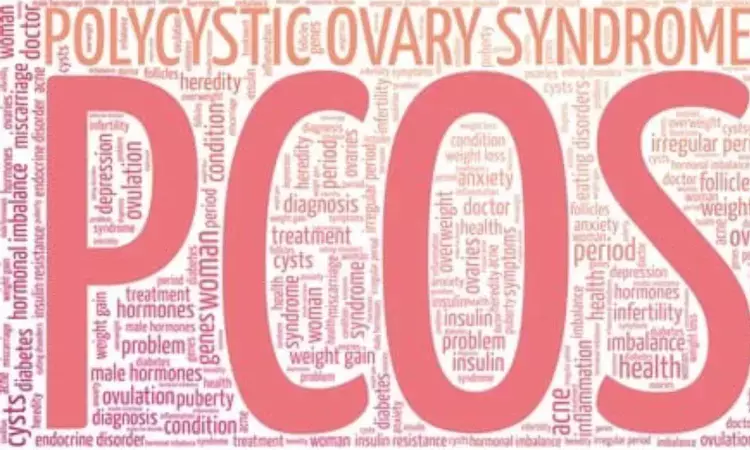- Home
- Medical news & Guidelines
- Anesthesiology
- Cardiology and CTVS
- Critical Care
- Dentistry
- Dermatology
- Diabetes and Endocrinology
- ENT
- Gastroenterology
- Medicine
- Nephrology
- Neurology
- Obstretics-Gynaecology
- Oncology
- Ophthalmology
- Orthopaedics
- Pediatrics-Neonatology
- Psychiatry
- Pulmonology
- Radiology
- Surgery
- Urology
- Laboratory Medicine
- Diet
- Nursing
- Paramedical
- Physiotherapy
- Health news
- Fact Check
- Bone Health Fact Check
- Brain Health Fact Check
- Cancer Related Fact Check
- Child Care Fact Check
- Dental and oral health fact check
- Diabetes and metabolic health fact check
- Diet and Nutrition Fact Check
- Eye and ENT Care Fact Check
- Fitness fact check
- Gut health fact check
- Heart health fact check
- Kidney health fact check
- Medical education fact check
- Men's health fact check
- Respiratory fact check
- Skin and hair care fact check
- Vaccine and Immunization fact check
- Women's health fact check
- AYUSH
- State News
- Andaman and Nicobar Islands
- Andhra Pradesh
- Arunachal Pradesh
- Assam
- Bihar
- Chandigarh
- Chattisgarh
- Dadra and Nagar Haveli
- Daman and Diu
- Delhi
- Goa
- Gujarat
- Haryana
- Himachal Pradesh
- Jammu & Kashmir
- Jharkhand
- Karnataka
- Kerala
- Ladakh
- Lakshadweep
- Madhya Pradesh
- Maharashtra
- Manipur
- Meghalaya
- Mizoram
- Nagaland
- Odisha
- Puducherry
- Punjab
- Rajasthan
- Sikkim
- Tamil Nadu
- Telangana
- Tripura
- Uttar Pradesh
- Uttrakhand
- West Bengal
- Medical Education
- Industry
Sleep disturbances decrease in women with PCOS after menopause, suggests study

A recent study published in The Journal of Clinical Endocrinology and Metabolism revealed that sleep disturbances decrease in women with polycystic ovary syndrome (PCOS) after menopause, while they increase with age in women without PCOS. The findings suggest future studies should include objective sleep assessments to better understand these changes.
The study was conducted as part of the long-running Study of Women’s Health Across the Nation (SWAN), examined the sleep experiences of women with and without a history of PCOS over a period of more than 2 decades. This research was set to determine whether sleep issues (difficulty falling asleep, frequent awakenings during the night, and early morning waking) persisted or changed as women transitioned through menopause.
The analysis included 83 women with PCOS and 1,977 women without the condition, following their sleep patterns from baseline through the 15th follow-up visit. The data found a striking difference in how sleep patterns evolved over time between the 2 groups. Women without PCOS reported a gradual increase in sleep disturbances as they aged and entered postmenopause, which is consistent with broader findings that sleep quality tends to decline with age.
However, among women with PCOS, the prevalence of sleep problems remained relatively stable over time. Rather than worsening, their self-reported sleep issues appeared to plateau as they transitioned through menopause. After adjusting for factors like body mass index, age, and health status, naturally postmenopausal women with PCOS were significantly less likely to report sleep disturbances than their counterparts without PCOS.
To ensure accuracy, the study also included actigraphy-based measurements (wearable devices) along with self-reported assessments. By the 15th follow-up visit, no significant differences were found in either objective or subjective sleep measures between the 2 groups. This suggests that, despite the earlier risk of sleep apnea often linked to PCOS, women with the condition may experience a form of stabilization in sleep quality over time.
Across the 20-year span, women without PCOS showed a steady rise in reports of all 3 major sleep disturbances. Also the PCOS group’s percentages stayed nearly flat which indicated no age-related increase in difficulty falling asleep, nighttime awakenings, or early morning waking. Adjusted models confirmed that PCOS status was linked to lower odds of developing new sleep problems after menopause. Overall, the research suggests that sleep in postmenopause phase may not be as disrupted as once feared in women with PCOS.
Reference:
Alur-Gupta, S., Sun, F., Zhang, H., Derby, C. A., Kravitz, H. M., Neal-Perry, G., Swanson, L. M., Vitek, W. S., Santoro, N., & Sammel, M. D. (2025). Polycystic ovary syndrome and sleep disturbance in postmenopausal women: Study of Women’s Health Across the Nation. The Journal of Clinical Endocrinology and Metabolism, dgaf529. https://doi.org/10.1210/clinem/dgaf529
Neuroscience Masters graduate
Jacinthlyn Sylvia, a Neuroscience Master's graduate from Chennai has worked extensively in deciphering the neurobiology of cognition and motor control in aging. She also has spread-out exposure to Neurosurgery from her Bachelor’s. She is currently involved in active Neuro-Oncology research. She is an upcoming neuroscientist with a fiery passion for writing. Her news cover at Medical Dialogues feature recent discoveries and updates from the healthcare and biomedical research fields. She can be reached at editorial@medicaldialogues.in
Dr Kamal Kant Kohli-MBBS, DTCD- a chest specialist with more than 30 years of practice and a flair for writing clinical articles, Dr Kamal Kant Kohli joined Medical Dialogues as a Chief Editor of Medical News. Besides writing articles, as an editor, he proofreads and verifies all the medical content published on Medical Dialogues including those coming from journals, studies,medical conferences,guidelines etc. Email: drkohli@medicaldialogues.in. Contact no. 011-43720751


